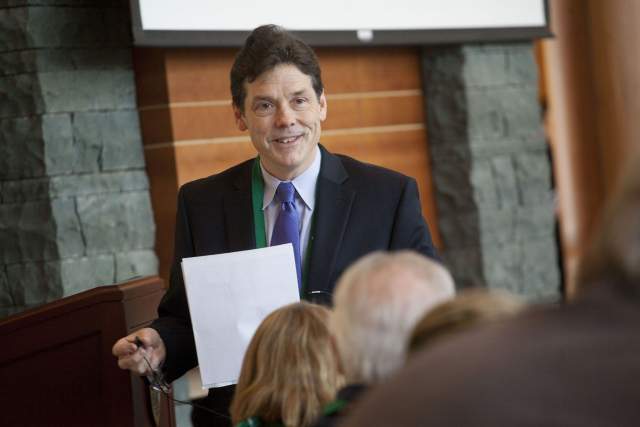For the past five years, Gordon Phillips, the Laurence F. Whittemore Professor of Business Administration at Tuck, has been making regular trips to Boston, New York, and Washington, D.C.
In each city, he visits a government building where he must show a badge to enter. He goes there to gather rich data from the Census Bureau: economic data on firms, demographic data on individuals and households from the Decennial Census and the American Community Survey, and longitudinal employer-household dynamics, which contain employment history and employer characteristics.
Phillips’s first research projects in this sphere used economic data to shed light on firms, mergers, and firm productivity. Most recently, he has been digging into the demographic and employer data, and combining it with firm data, to explore how individuals interact with firms and how they use credit and make career choices.
That recent effort has resulted in four papers that are under revise and resubmit for top finance and economics journals. His main co-author for these papers is Kyle Herkenhoff of the University of Minnesota and the Federal Reserve Bank of New York. The first paper is “Production and Learning in Teams,” under invited revision for Econometrica. This paper examines the effect of co-workers on the learning and productivity of individuals just hired. They find that more knowledgeable workers have a substantial positive impact on their more junior colleagues. “We show that education isn’t the only way people learn,” Phillips says. “People learn a lot on the job and they learn from their co-workers. It’s something to think about, beyond salary, when you’re looking for the right job.”
Hopefully we’ll advise policymakers when they make rules on credit—so they make sure it’s available but not too expensive. And I hope we can help the government decide how much unemployment insurance it should provide, given the access to credit today.
The second paper is “The Impact of Consumer Credit Access on Self-Employment and Entrepreneurship,” under invited revision for the Journal of Financial Economics. They find that increased access to personal credit led to greater self-employment and employer business ownership. Then came “How Credit Constraints Impact Job Finding Rates, Sorting & Aggregate Output,” under invited revision for the Review of Economic Studies. This paper finds that credit expansions let low human capital workers find more capital-intensive jobs, leading to improved productivity and welfare. Phillips’s newest paper is “Can the Unemployed Borrow? Implications for Public Insurance,” under invited revision for the Journal of Political Economy. In it, he and Herkenhoff and J. Carter Braxton of the University of Minnesota show that unemployed people maintain significant access to credit, which helps offset their income losses. Therefore, they argue, a slightly reduced rate of public unemployment insurance could make good policy sense. These three papers take a more unusual view of credit—as something that can be a boon to individuals and the economy, instead of just a path to bankruptcy.
“This research is important in several dimensions,” Phillips says. “Hopefully we’ll advise policymakers when they make rules on credit—so they make sure it’s available but not too expensive. And I hope we can help the government decide how much unemployment insurance it should provide, given the access to credit today.”
For Phillips, these four papers are just the beginning of a long-term research effort using the Census data. He has ideas for many others. He is examining how outsourcing affects firm financial structure and the types of employees firms hire. He is also looking into the growing popularity of employers granting credit to their employees and what this means for firm productivity and employee retention. “There are lots of ways we can exploit the richness of this data to see what’s going on in the U.S. economy to help inform both employees and policy,” he says.

